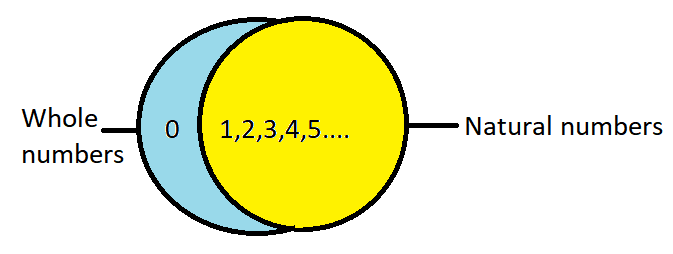How Many Natural Numbers Lie Between 92 and 102
Introduction
There are nine natural numbers that lie between 92 and 102.The number system is made up of natural numbers, which include all positive values from 1 to infinity. Because they don't include 0 or negative integers, natural numbers are sometimes known as counting numbers. They are a part of real numbers including only positive integers, but they do not include zero, decimals, fractions, and negative numbers. Natural numbers are the subset of whole numbers as whole numbers include all positive numbers starting from 0 to infinity. We frequently employ these numbers in our speech and daily activities.We see numbers everywhere around us, for counting objects, representing exchanging money, telling time, etc.
The natural numbers include only the positive integers, i.e., 1, 2, 3, 4, 5, 6,...
The whole numbers include zero also i.e., 0, 1, 2, 3, 4, 5, 6,.....
Therefore we can say that natural numbers are the subset of whole numbers.
Natural Numbers Examples
Natural numbers include the positive integers (also known as non-negative integers ) and a few examples include 1,2,3,4,5,6,7,9,…….In other words, natural numbers are a set of all the whole numbers excluding 0.
45, 46, 47, 48, 49, 50, 51, 52, 53, 54, 55……….etc are all examples of natural numbers.
Natural Numbers lie between 92 and 102
Natural numbers lie between 92 and 102 are 93, 94, 95, 96, 97, 99, 100 and 101, therefore a total of 9 natural numbers exist between 92 and 102.
Natural numbers follows four properties
Closure property : The addition and multiplication of two or more natural numbers will always give a natural number. In case of subtraction and division natural numbers do not obey closure property, which means they do not always give a natural number on subtraction or division.
Commutative property : Addition and multiplication shows commutative property for example :-
 (x+y=y+x)
(x+y=y+x)
In case of subtraction and division natural numbers do not show commutative property for example:- ![]() (x - y \neq y - x)
(x - y \neq y - x)
Associative property : In the case of addition and multiplication of natural numbers, the associative property is valid.i.e .
 (a \times(b+c)=a b+a c) and
(a \times(b+c)=a b+a c) and  (a \times(b \times c)=(a \times b) \times c).On the other hand, the associative property does not apply to the operations of subtracting and dividing natural numbers.
(a \times(b \times c)=(a \times b) \times c).On the other hand, the associative property does not apply to the operations of subtracting and dividing natural numbers.Distributive property : Natural number multiplication is always distributive relative to addition. For example,
 ( a \times(b+c)=a b+a c)
( a \times(b+c)=a b+a c)
Natural number multiplication also has a distributive advantage over subtraction. For example, ![]() (a \times(b-c)=a b-a c)
(a \times(b-c)=a b-a c)
Conclusion
Natural numbers start from 1 to positive infinity. A total of 9 natural numbers lie between 92 and 102.
Applications for Admissions are open.
As per latest syllabus. Physics formulas, equations, & laws of class 11 & 12th chapters
JEE Main Important Chemistry formulas
Get nowAs per latest syllabus. Chemistry formulas, equations, & laws of class 11 & 12th chapters
JEE Main high scoring chapters and topics
Get nowAs per latest 2024 syllabus. Study 40% syllabus and score upto 100% marks in JEE
JEE Main Important Mathematics Formulas
Get nowAs per latest syllabus. Maths formulas, equations, & theorems of class 11 & 12th chapters

